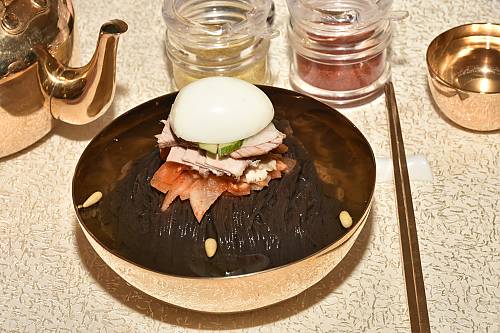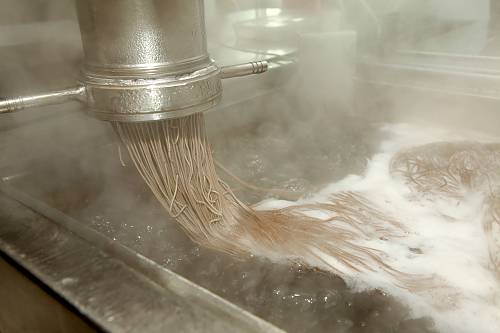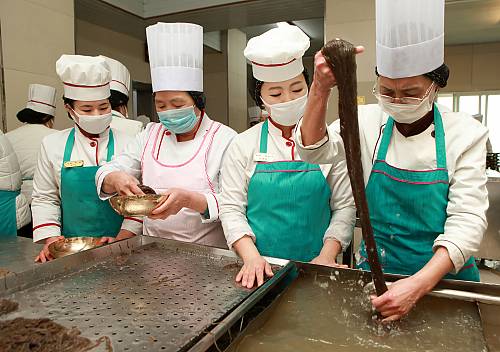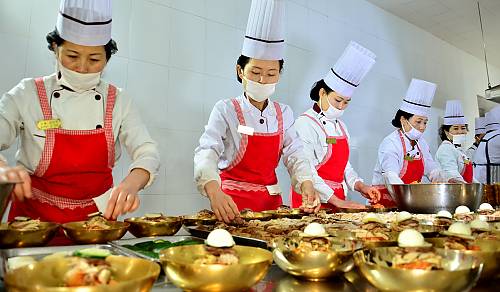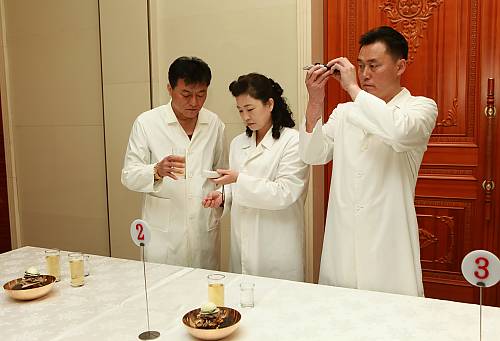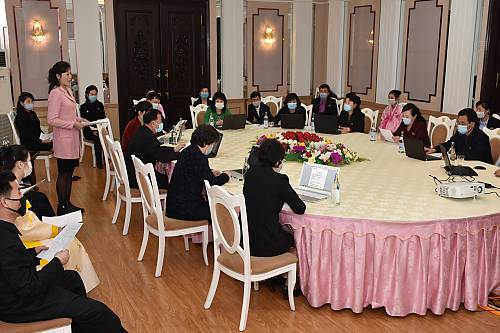Pyongyang Raengmyon custom
Democratic People’s Republic of Korea
Inscribed in 2022 (17.COM) on the Representative List of the Intangible Cultural Heritage of Humanity
Pyongyang Raengmyon (cold noodles made primarily from buckwheat) is a customary social and cultural dish in North Korea. It is served in a brass bowl and topped with trimmings of meat, Kimchi, vegetables, fruits and garnish. Cool meat stock or watery radish Kimchi juice is poured over the noodle strips to finish the preparation. A traditional folk dish deeply rooted in the lives of Pyongyangites, it is associated with long life, happiness, hospitality, conviviality and friendliness, and is believed to foster respect, intimacy and unity. A day before Jongwoldaeborum (a Korean folk winter holiday), family members and neighbours gather to enjoy the noodles, hoping their life will be as long as the noodle strips. At celebrations such as birthdays and weddings, Pyongyangites serve the dish with blessings for relatives, neighbours and friends. It is customary to have some liquor beforehand. Today, the dish has spread beyond special occasions with the establishment of Pyongyang Raengmyon restaurants. Within families, grandmothers and mothers take pride in the transmission of the skills and knowledge to their children, regarding it as their moral obligation. The practice is also transmitted through work-study programmes and trainings in restaurants, cooking contests, festivals and exhibitions, as well as by the media and in educational institutes.

